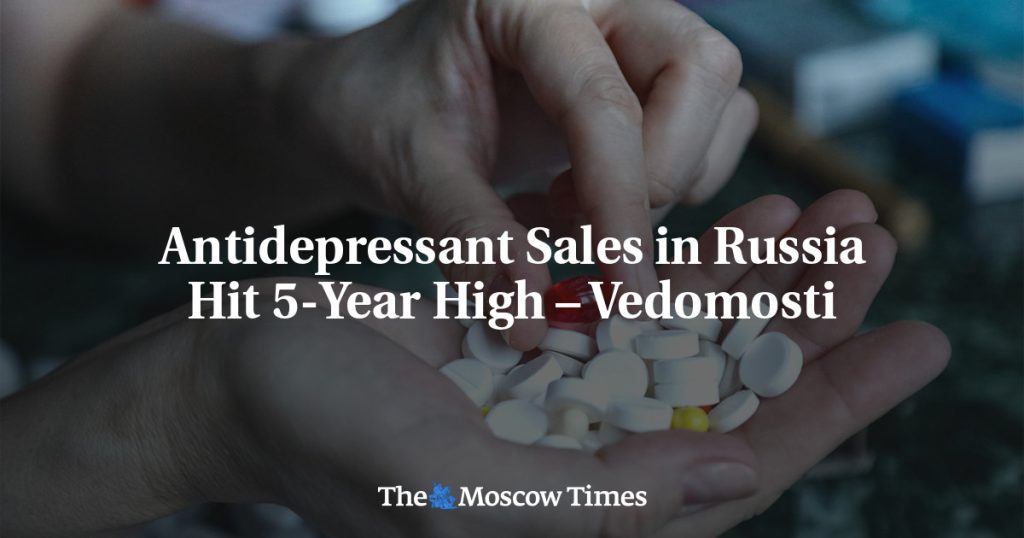Antidepressant sales in Russian pharmacies have reached a five-year high in the first months of 2024, with 3.6 million packs of antidepressants worth 2.9 billion rubles being sold. Vedomosti, a business daily, reported this increase, attributing it to doctors prescribing antidepressants over Soviet-era sedatives and tranquilizers that lack scientific evidence of their effectiveness. The trend of increasing antidepressant sales has been observed over the past few years, with 2.7 million packs sold in 2023, 3.3 million packs in 2022, and 1.8 million packs in 2021 and 2020 each.
Data from the DSM Group, a pharmaceutical market research company, shows that major pharmacy chains have confirmed the rise in both nominal and percentage terms of antidepressant sales. This increase has led to a decline in the demand for herbal and sedative drugs such as Corvalol and Phenibut since 2019. According to Vedomosti, experts predict that antidepressants will continue to gain popularity in Russia as anxiety levels remain high among the public. This shift in the pharmaceutical market reflects a growing preference for scientifically proven treatments for mental health issues.
The rise in antidepressant sales highlights a shift towards evidence-based treatments for mental health disorders in Russia. As doctors increasingly prescribe antidepressants over older medications with unproven efficacy, consumers are showing a growing preference for these newer drugs. This trend is expected to continue as anxiety levels persist among the Russian population, leading to an increased demand for treatments that have been scientifically validated. The changing landscape of mental health care in Russia reflects a broader trend towards evidence-based medicine and a focus on quality and effectiveness in healthcare systems.
The increase in antidepressant sales in Russian pharmacies indicates a growing awareness and acceptance of mental health issues in the country. The rise in demand for these medications suggests a shift towards seeking professional help for mental health concerns and a willingness to engage in treatment. As antidepressants become more widely used, stigma surrounding mental health disorders may decrease, leading to improved access to care and better outcomes for those struggling with these conditions. The pharmaceutical market in Russia is responding to this growing need for mental health treatments by providing more options for individuals seeking help for their mental well-being.
The surge in antidepressant sales is a reflection of changing societal attitudes towards mental health in Russia, with a focus on addressing symptoms with scientifically proven treatments rather than relying on traditional, unproven remedies. The increase in sales of antidepressants over herbal and sedative drugs suggests a shift towards evidence-based medicine and a recognition of the importance of treating mental health issues effectively. As anxiety levels continue to remain high in the country, it is likely that the demand for antidepressants will continue to rise, emphasizing the need for accessible and effective mental health care options. The pharmaceutical market in Russia is adapting to these changing dynamics by providing a wider range of treatment options to meet the needs of the population.
In conclusion, the growth in antidepressant sales in Russian pharmacies signals a shift towards evidence-based treatments for mental health issues and a growing acceptance of seeking help for these conditions. As anxiety levels persist in the country, the demand for antidepressants is expected to continue rising, reflecting a broader trend towards prioritizing mental health care in the healthcare system. This trend highlights the importance of providing quality, effective treatments for mental health disorders and the need for greater awareness and acceptance of these issues in society. The pharmaceutical market in Russia is responding to these changing dynamics by offering a variety of mental health treatments to meet the needs of individuals seeking help for their mental well-being.


